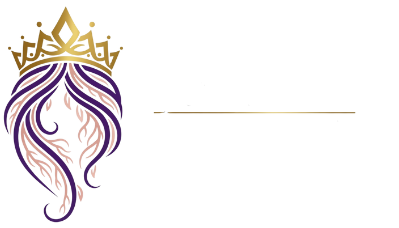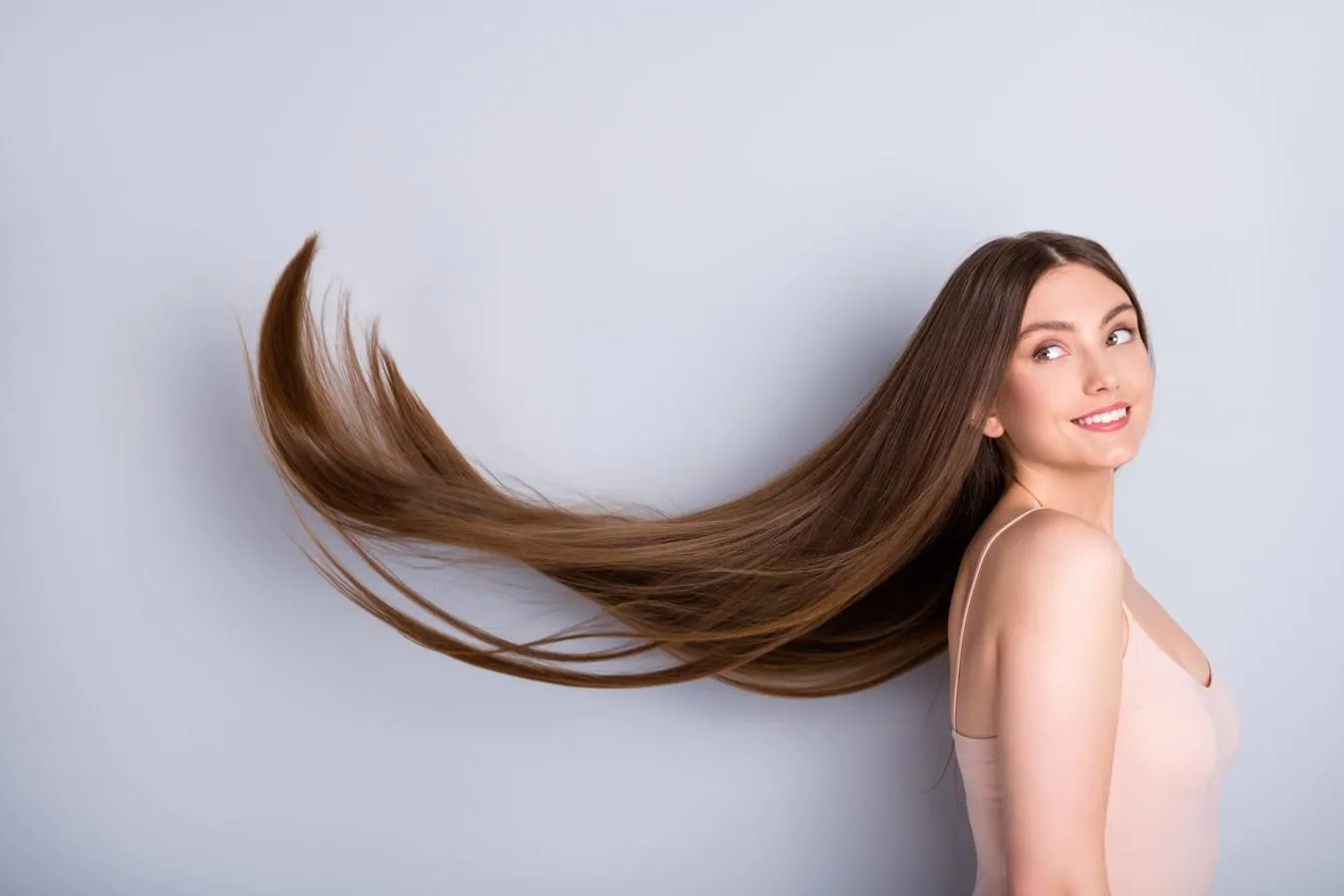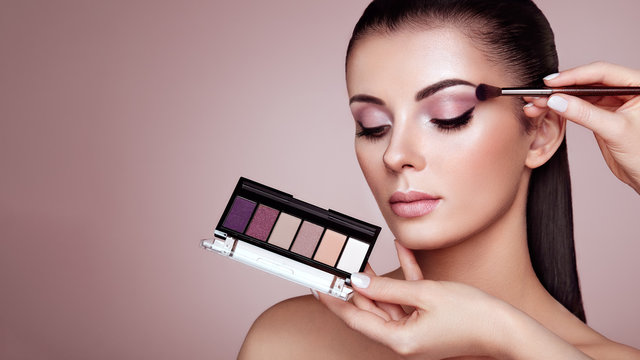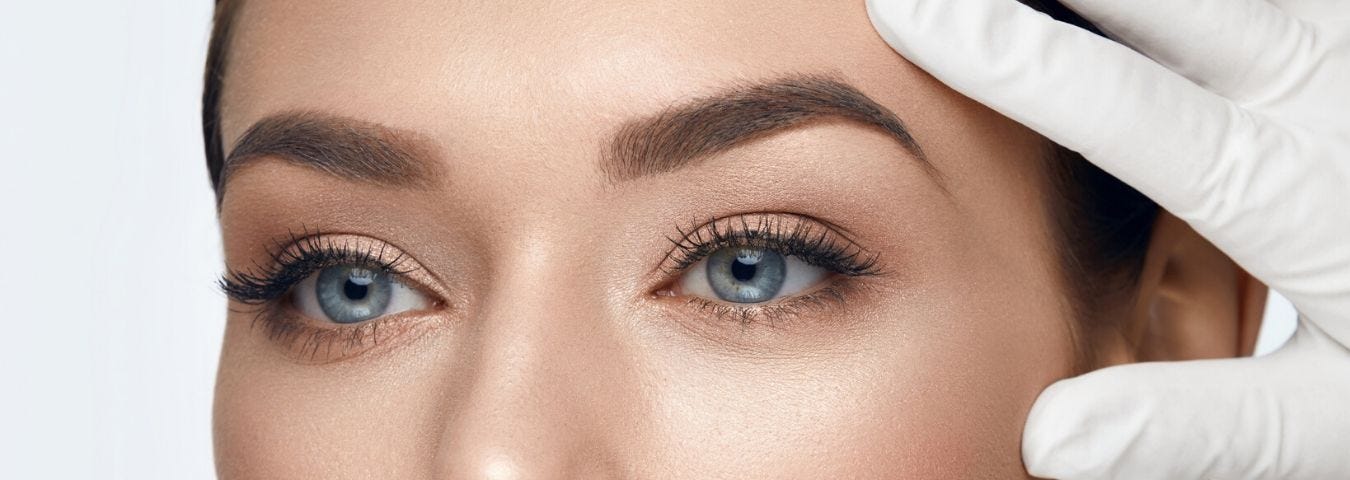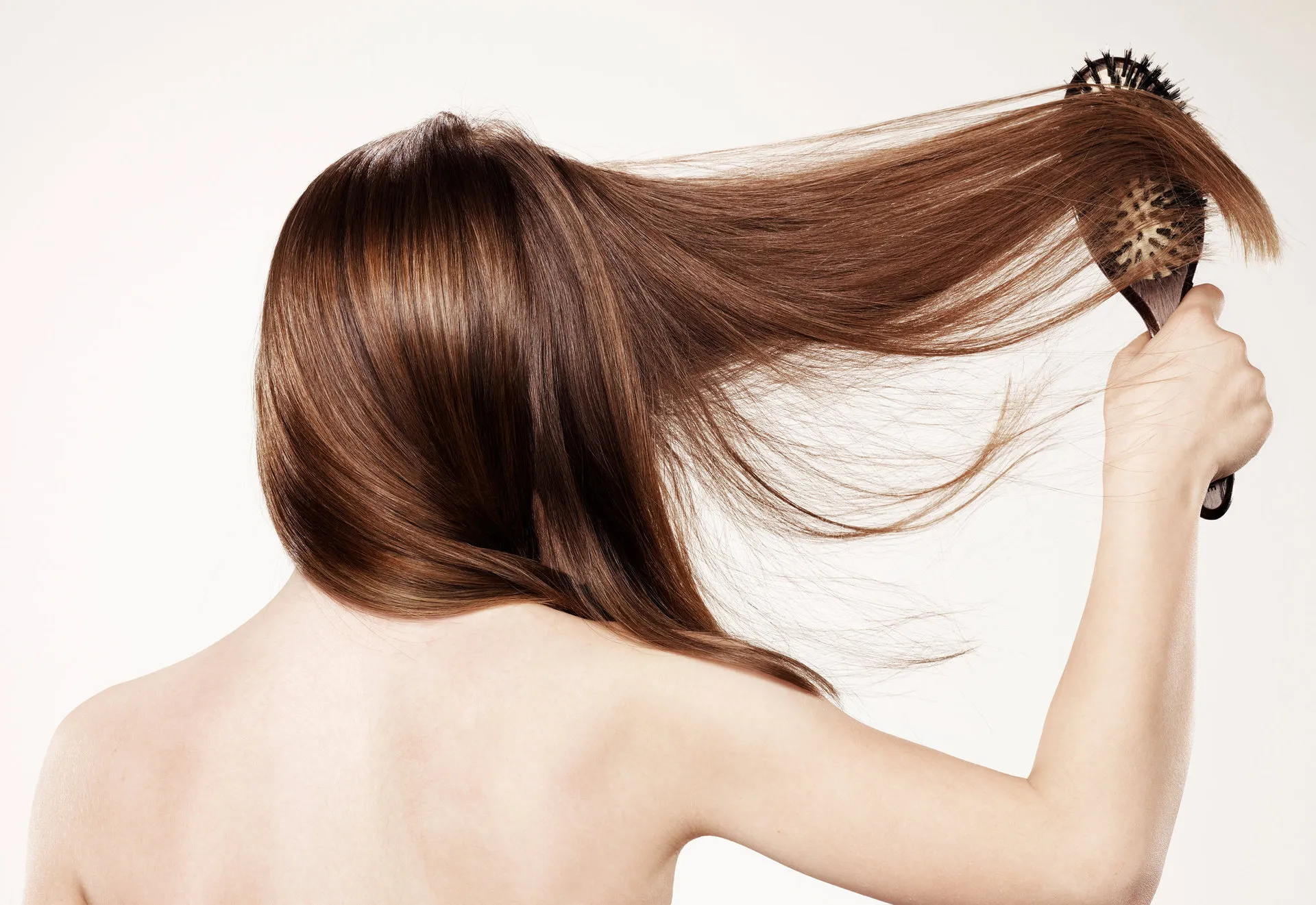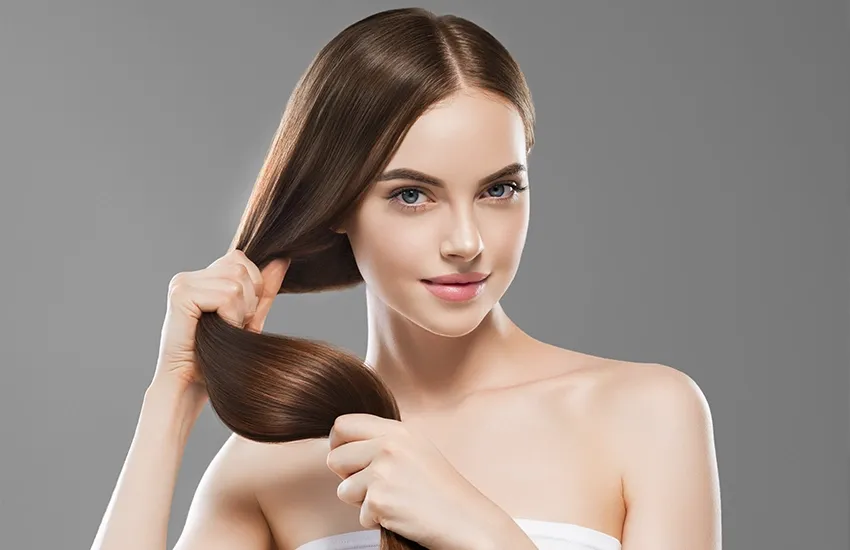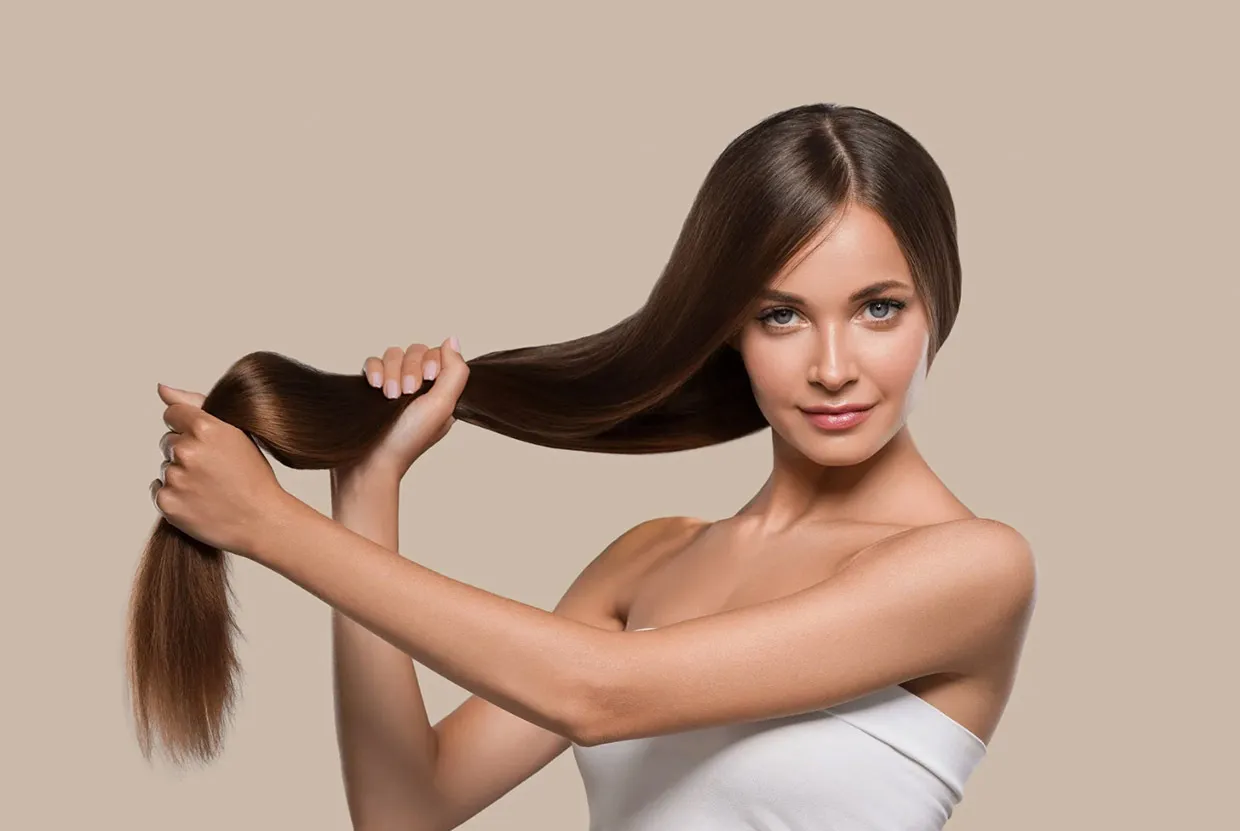We’ve all been there: staring in the mirror at dry ends, lackluster shine, or more hair in the brush than on our head. We invest in expensive shampoos and salon treatments, but what if the true secret to radiant hair isn’t found in a bottle, but on your plate and in nature’s pharmacy?
Healthy hair growth starts at the follicle, fueled by the nutrients you consume. By nourishing your body with the right building blocks, you can support stronger, longer, and shinier hair naturally. Let’s dive into the ultimate guide for hair health, covering everything from the foods you eat to the power of herbs and essential oils.
Best Foods for Healthy Hairs
Diet plays a vital role in the look, feel, and strength of all our body parts including hairs. Think of your hair as a plant. Without the right soil and nutrients, it can’t thrive. These are the top food groups to incorporate into your diet for a healthy.
Fatty Fish & Omega-3s (Salmon, Mackerel, Sardines)
For truly lustrous hair, turn to fatty fish like salmon and mackerel. Their high omega-3 content nourishes hair follicles, reduces scalp inflammation, and boosts natural shine. This internal hydration prevents dry, brittle strands, promoting stronger, more resilient hair growth from the root.
Lean Proteins (Eggs, Chicken, Lentils, Greek Yogurt)
Hair is made almost entirely of a protein called keratin. A lack of adequate protein can lead to weak hair and even hair loss. Eggs are a superstar, as they also contain biotin, a crucial B-vitamin for hair health.
Dark Leafy Greens (Spinach, Kale)
Dark leafy greens like spinach and kale are vital for hair health. Packed with iron, folate, and vitamins A and C, they help your scalp produce sebum, a natural conditioner. This nourishes follicles, strengthening hair from the root and preventing dryness for healthier hairs.
Berries & Vegetables (Bell Peppers, Strawberries, Sweet Potatoes)
Berries and vegetables are essential for protecting your hair. They are rich in antioxidants like Vitamin C, which defend fragile hair follicles from damage caused by free radicals in the environment. Furthermore, Vitamin C plays a critical role in producing collagen, a key protein that provides structure and strength to the hair shaft, helping to prevent breakage and promote resilience.
Nuts and Seeds (Walnuts, Almonds, Sunflower Seeds, Chia Seeds)
Nuts and seeds are true nutritional powerhouses for your hair, densely packed with zinc, selenium, Vitamin E, and omega fatty acids. Zinc, in particular, is vital for hair tissue growth and repair. This powerful combination works to strengthen strands, support healthy follicles, and protect your hair from damage, promoting overall vitality.
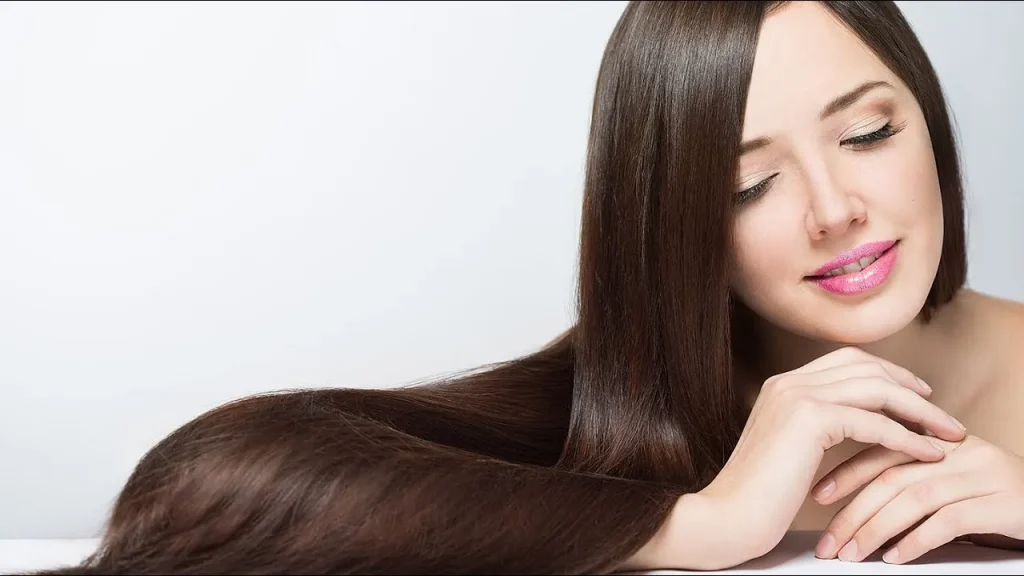
Nutrition For Healthy Hairs
The quantity and quality of the hair are closely related to the nutritional state of an individual. Nutrition is the science that interprets the interaction of nutrients and other substances in food in relation to maintenance, growth, reproduction, health, and disease of an organism. Beyond whole foods, it’s helpful to know the specific nutrients that play a starring role:
Biotin (B7)
Biotin is essential for hair health as it supports the production of keratin, the protein that makes up hair. This vitamin strengthens hair strands, reduces breakage, and promotes growth. A biotin deficiency can lead to thinning hair. Find it in eggs, nuts, and seeds.
Iron
Iron is crucial for healthy hair growth, as it helps red blood cells carry oxygen to your hair follicles. Without adequate iron, follicles can be starved of oxygen, leading to weakened hair and increased shedding. Include iron-rich foods like spinach, lentils, and red meat in your diet to maintain strong, vibrant hair.
Zinc
Zinc plays a vital role in hair tissue growth and repair. It helps keep oil glands around follicles functioning properly. Zinc deficiency can lead to hair shedding, while balanced levels support strong, healthy growth. Excellent sources include oysters, pumpkin seeds, lentils, and spinach.
Vitamin D
Vitamin D helps activate hair follicle growth cycles. Low levels are linked to thinning and hair loss. Safe sun exposure, fortified foods, and fatty fish can help maintain adequate Vitamin D for healthy hair maintenance. Consult a healthcare provider before starting supplements
Top Herbs for Healthy Hairs
For centuries, traditional medicine has used herbs to promote hair health. Here are a few standouts:
Saw Palmetto
This herb may help combat hormonal hair loss by blocking the conversion of testosterone to DHT, a hormone that shrinks follicles. Available as supplements or extracts, it supports hair density. Always consult a healthcare provider before use to ensure safety and proper dosage
Horsetail Herb
Horsetail Herb is renowned for its high silica content, a mineral crucial for strong, flexible hair. By reinforcing the hair shaft and supporting keratin, it effectively reduces breakage and split ends, leading to noticeably thicker, more resilient hair. Available as a tea or supplement.
Ginseng
Ginseng is believed to promote hair growth by stimulating blood flow to the scalp, delivering essential nutrients to follicles. Its adaptogenic properties may also help reduce stress-induced hair loss. Available in various forms, but professional guidance is recommended before use to ensure safety and efficacy
Essential Oils for Hair Growth
Essential oils are highly concentrated plant extracts. They must always be diluted with a carrier oil (like jojoba, coconut, or argan oil) before applying to the scalp. A common dilution is 3-5 drops of essential oil per tablespoon of carrier oil.
Rosemary Oil
Clinical studies have shown rosemary oil can rival minoxidil in promoting hair growth. It works by stimulating blood circulation and cellular activity in hair follicles. Use diluted in a carrier oil for scalp massages to support thicker, healthier hair growth. Always patch tests first.
Peppermint Oil
Known for its invigorating cooling sensation, peppermint oil increases blood circulation to the scalp when applied. This surge of blood flow delivers essential nutrients to hair follicles, potentially awakening dormant ones and accelerating growth rate. Studies suggest it can significantly improve hair thickness and follicle depth. Always dilute with a carrier oil before use.
Lavender Oil
Renowned for its calming scent, lavender oil also offers significant hair benefits. Its antimicrobial properties help maintain a healthy scalp environment, while studies indicate it can promote hair growth by increasing the number of follicular cells. Always dilute with a carrier oil before scalp application to enjoy its soothing and growth-enhancing effects.
Conclusion
Ultimately, the journey to healthier hair is a testament to the power of holistic, consistent care. There is no single miracle cure, but rather a symphony of choices that work together. True transformation begins by nourishing your body from within with nutrient-rich foods—the building blocks for strong follicles. This internal foundation is then amplified by targeted external support, such as scalp-stimulating herbs and essential oils. Remember, this is a marathon, not a sprint. Patience and persistence are your greatest allies. By committing to this integrated approach, you invest in hair that is not just visibly healthier, but fundamentally stronger from the root up.
